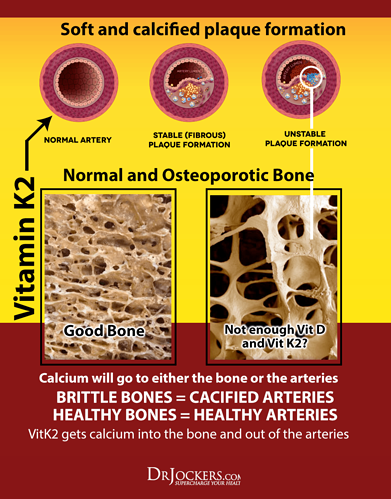Someone in a Norwegian Zero carb group I’m a member in posted this rare video clip of an interview with Vilhjalmur Stefannson, where he talks about his diet staying with the Inuit people. I find it very interesting that (contrary to popular belief) he claims that they actually threw the organ meat to the dogs, and ate the muscle meat themselves. This was news to me, I always thought that it was the other way round 
Vilhjalmur Stefannson, rare video clip
he claims that they actually threw the organ meat to the dogs, and ate the muscle meat themselves. This was news to me, I always thought that it was the other way round
News to me too! lol.
Mind you, I LOVE organ meat. Wouldn’t want to give it up, and have no intention of doing so… 
Also seen a few pictures of freshly killed seals/reindeer with the still warm liver being handed out to kids (like sweets), so will happily continue as I am.

Looks like one happy family there <3
What kind of organ meat do you eat?
Liver, kidney, heart, lung, spleen (from my local butcher) typically a lamb and pig combo.
Usually as homemade liver pate, or offal soup.
Can’t quite get it together to do sweetbreads and brawn - and tripe is vile! Haha!
Here is the soup recipe. Tastes like souped up steak and kidney pie, which i also used to love.
It’s a fascinating video. I believe it was posted here once before, because I remember having the same reaction about the organ meat thing. One thing I found really interesting was that his parents were persuaded to baptise him as “William Stephenson,” but he always went by the Icelandic version of the name.
While I love liver, that and oxtail are about as adventurous as I’ve gotten. Steak and kidney pie is okay, but kidneys by themselves often smell of urine to me, and I just can’t cope. Bought some tripe once, but never could bring myself to cook it. Laura Ingalls Wilder wrote approvingly of headcheese and sweetbreads, however, so perhaps I’ll try them at some point. What do people think of blutwurst?
I’d be interested to try it (blutwurst) mainly because i used to enjoy black pudding, and the main difference s that black pud has carbs in.
Although (confession time) i pefer the taste of raw blood to cooked blood. Mind you, that is only by comparing the taste of my own cut finger, with the taste of black pudding, so I won’t move in with the Masai quite yet…
I think the freshness would be key. Old blood really doesn’t appeal.
Freshness would be key, eh? Does that mean I’m going to have to call in the slayer to deal with you? 

I am wondering if this is really the case, did they just switch tracks from traditionally eating organ meats with some muscle meats and lots of fat at some point in time? Interesting!
”… p. 66 Stefensson once felt ill until his craving for calf’s brain was satisfied ibid. …” The Hundred Year Diet: America’s Voracious Appetite for Losing Weight By Susan Yager
Yes, and I would imagine that it would depend on time of year and availability of meat.
I mean, when times are short, you eat everything.
When there’s a glut, you eat to your preferences, especially when too much liver/kidney etc. is likely to give over nutrition.
Edited to add:
quote from the link: Fossilized skeletal remains of early humans suggest that bone abnormalities may have been caused by hypervitaminosis A (17, 18). From these and other reports, vitamin A toxicity is known to be an ancient phenomenon. Several comprehensive reviews and case studies of vitamin A toxicity, which discuss both acute and chronic excess, have been published (19–21).
Some other interesting notes on the subject:
“… Vitamin A Toxicosis (hypervitaminosis A) in Dogs: Vitamin A toxicity is usually caused by eating too much organ meat, especially liver, which contains high levels of vitamin A, or by consuming supplements containing high levels of cod liver oil …” “…There seems to be considerable variability in how susceptible individual dogs are to this problem. Some dogs can eat large quantities of vitamin A and never develop problems while other dogs seem much more prone to develop the problem. This condition is extremely unlikely to develop if you feed your dog a high-quality commercial dog diet produced by a reputable manufacturer. …” - VCA Animal Hospital
“… A more careful consideration of the research suggests, however, that what is at issue is not an excess of vitamin A, but an imbalance between vitamin A and other nutrients in the diet, especially vitamin D. Human and animal evidence strongly suggests that vitamin A can only exert harm against the backdrop of vitamin D deficiency, that sufficient levels of vitamin A are even higher than once thought, and that supplementing with carotenes is neither an adequate nor a safe way to achieve these optimal levels – all of which are consistent with and supportive of Price’s timeless findings. …” - Christopher Masterjohn PhD

Related:
- “… Indeed, organ meats optimize the function of your organs and promote their repair. …” “… Vitamin A, one of the most powerful antioxidants known to man, is found in massive quantities in most organ meats. Far from offering just one benefit, the presence of vitamin A is important because it provides the complete array of benefits without adding the risk of toxicity. You see, many people have heard that an overdose of vitamin A can be toxic. However, your body does not absorb synthetic vitamin A in the same way it absorbs it from dietary sources. Generally, the body simply expels excess nutrients in the food you eat if it can tell you don’t need them. This isn’t the same story for the vitamins and minerals found in supplements, which don’t process the same way and can sometimes cause toxic reactions when overeaten. Of course, there are very rare exceptions to this rule. Eating the organ meats of polar bears, for example, has (at least in one case) been found to cause “severe illness,” likely due to the overwhelmingly high amounts of vitamin A it contained (a condition now referred to as “hypervitaminosis A”). (3) Not a polar bear hunter in an arctic tundra? My guess is that you’ll probably be just fine. Back to the good stuff. Two types of vitamin A exist in food: active vitamin A or “retinol” and beta-carotene . Retinol is the vitamin A found in meats, meaning the body doesn’t have to first convert it to anything in order to use it. …” …More
- “…Protomorphogens (organ and specific glandular meats) are nucleic acids that regulate growth specific to each tissue in the body, which are released into the cell cytoplasm by the cell nucleus. Describing the theory of the “autoimmune reaction” (a concept medicine is still trying to understand to this day), Dr. Lee explains that when a tissue or organ becomes fatigued and sick, it begins to produce an abnormally high amount of its own protomorphogen. This, in turn, causes the body to produce a correspondingly high amount of natural tissue antibodies (autoantibodies). When the amount of antibody exceeds the amount of protomorphogen, the excess autoantibodies attack the actual cells of the tissue. …More
Yep, vitamin D deficiency is easy to come by in the arctic. They would be better off dumping the liver if game was plenty.
The Eskimo obviously knew (n=1: when people got sick) eating organ meats of Polar Bears was not so good and what meats or organs from certain land mammals or marine sources were good and not good nutritionally!
Wonder how much Vit K2 is available in a tundra?
(idle question, because I don’t have time to research it today)
Looks like if you’re full carnivore and can get a hold of liver or eggs or fish, you’re set.
https://chrismasterjohnphd.com/2016/12/09/the-ultimate-vitamin-k2-resource/
https://chrismasterjohnphd.com/2016/12/29/updates-ultimate-vitamin-k2-resource/
Thank you @atomicspacebunny for your thorough post on the subject! I haven’t ventured in to organ meat just yet, I’m still getting used to eating meat (and nothing else) to satiety. Living in Norway, we don’t se much of the sun in the winter, and as our diets no longer consists of herring and potatoes, we’re probably all pretty Vitamin D deficient.
I don’t supplement anything, simply because I find it impossible to guesstimate how much, and don’t want to spend money on things I’m doubtful will make any difference to my health 
When my gut becomes more carnivor adapted, I’m curious if my tastes will change, and if I’ll crave other things like organ meats - I guess I’ll just have to wait to find out 

